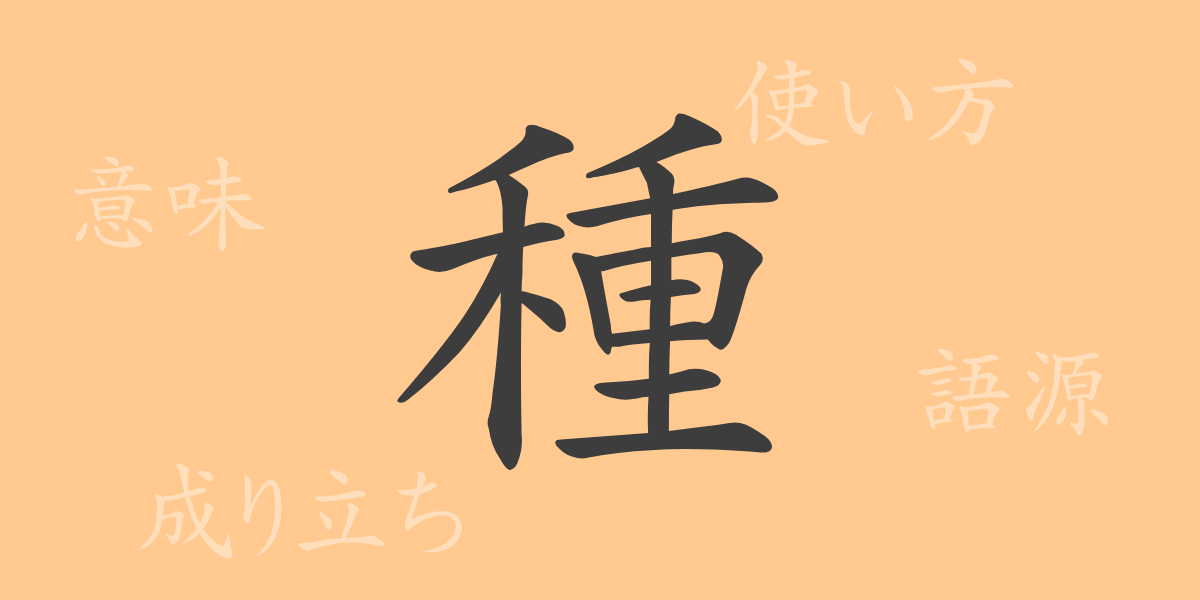The continuity of life, the transmission of culture, the germination of ideas. What all these have in common is the presence of “種(たね)”. One of the commonly used kanji in Japanese, “種(たね)” is deeply rooted in our lives and carries a wide range of meanings and uses. In this article, we will explore the charm of the kanji “種(たね)”, from its origins to its idiomatic expressions.
Origin of 種(たね) (Etymology)
The kanji “種(たね)” developed from ancient pictographs representing the grain at the center of an ear of rice. Originally, it meant “seed” which is essential for plants to produce the next generation, symbolizing the inheritance and prosperity of life. Over time, “種(たね)” came to represent the origin and types of things, taking on more abstract meanings.
Meanings and Usage of 種(たね)
The kanji “種(たね)” is used to refer to specific “seeds” as well as abstract concepts like “types” and “causes”. It also appears in terms like “人種(じんしゅ)” (race) to classify people, showing its wide range of applications.
Readings, Stroke Count, and Radical of 種(たね)
The kanji “種(たね)” is frequently used in Japanese, with distinct readings and structure.
- Readings: The on’yomi (音読み) is “シュ” and the kun’yomi (訓読み) is “たね”.
- Stroke count: “種(たね)” has a total of 14 strokes.
- Radical: The radical is 禾(のぎへん), which is related to grains.
Idioms, Phrases, and Proverbs Using 種(たね)
Idioms, phrases, and proverbs that include “種(たね)” play an important role in Japanese. They are often used to convey lessons and wisdom.
- “種を明かす” – To reveal a secret or solve a mystery.
- “種を撒く” – To start something for the future.
- “人種差別(じんしゅさべつ)” – Racial discrimination.
- “種も仕掛けもある” – To be well-prepared for something.
Conclusion on 種(たね)
The kanji “種(たね)” symbolizes the beginning of life, extending to mean types and causes. Its applications range from everyday conversations to specialized discussions, demonstrating the depth of the Japanese language. When you encounter “種(たね)” in your daily life, take a moment to recall the rich history and meanings behind this character.

























